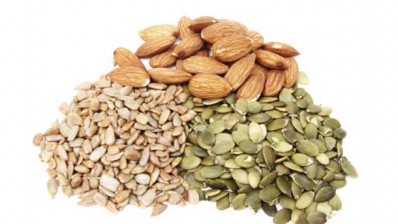Fraud prevention guide unveiled for herbs and spices

The paper is aimed to provide food firms with industry best practice guidance on the assessment and protection of the authenticity of culinary dried herbs and spices.
It was developed by the British Retail Consortium (BRC), Food and Drink Federation (FDF) and the Seasoning and Spice Association (SSA) in liaison with the Food Standards Agency (FSA) and Food Standards Scotland (FSS).
Central to the guide is a decision-tree, which navigates producers through a series of specific vulnerabilities in the supply chain.
Appropriate measures
Kerina Cheesman, policy and food integrity manager at the FDF, said the practical guidance will help food companies ensure they have the appropriate measures in place.
She said: “Culinary dried herbs and spices are widely used ingredients. This guide, developed in partnership with regulators, draws on industry expertise to provide food businesses across the supply chain with practical guidance so that they can confidently play their part in assuring the integrity of these ingredients.”
Elizabeth Andoh-Kesson, food policy advisor at the BRC, said: “This is a really important, practical guide for all food businesses to improve the way they manage a potentially vulnerable supply chain.
“It was great to collaborate with experts from manufacturers and suppliers to make a positive contribution to securing the supply chain and reinforcing consumer confidence.”
Growing concern in the US
The trade bodies came together following growing concern in the US and Canada that certain batches of ground cumin and paprika were being tested positive for undeclared peanut protein.
The level of contamination suggested that the products had most likely been adulterated with cheaper materials for financial gain.
As a consequence, both industry and the FSA launched sampling programmes in the UK.
While the programmes uncovered no evidence of large scale adulteration of herbs and spices, the FSA – recognising the severity of the situation in North America – decided to meet with representatives from across the food industry at a specially organised workshop.
A key recommendation arising from this workshop was that an expert joint industry working group should be established to develop best practice guidance for UK businesses.
The full guidance is available here.
Fraud protection: 'decision tree' guide
- Do you know what you are buying and have you requested detailed specifications?
- Are you buying from an approved/certificated supplier?
- Are you buying in whole form?
- Do you have an understanding of the factors which may influence the market?
- Is the price reflective of the material being purchased?
- Are you aware and have assessed vulnerabilities in the supply chain?
- Are appropriate controls in place to protect against vulnerabilities (preventative and/or verification and detection measures)?
- Have you reviewed the material on receipt to ensure that it meets the agreed specifications?
- Do you have procedures in place to deal with any material that does not meet the agreed specifications and/or is not legally compliant?
















